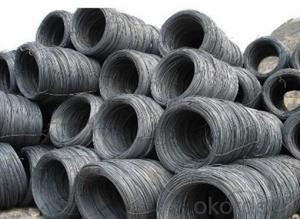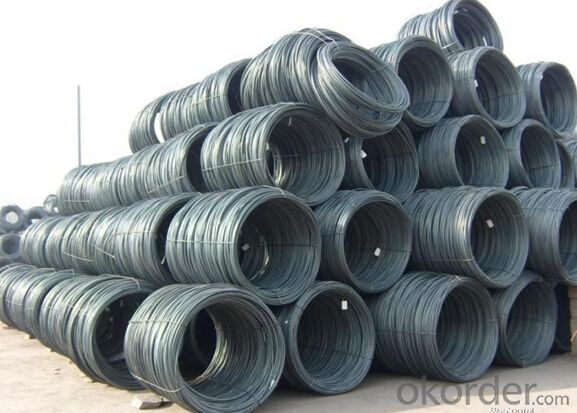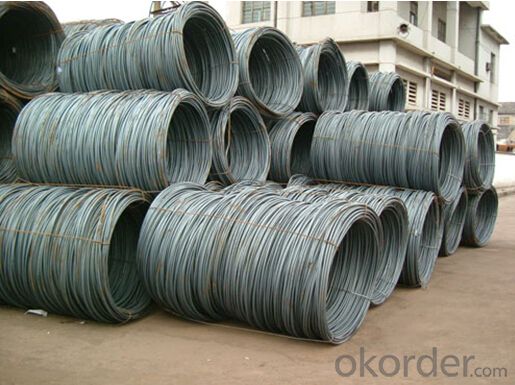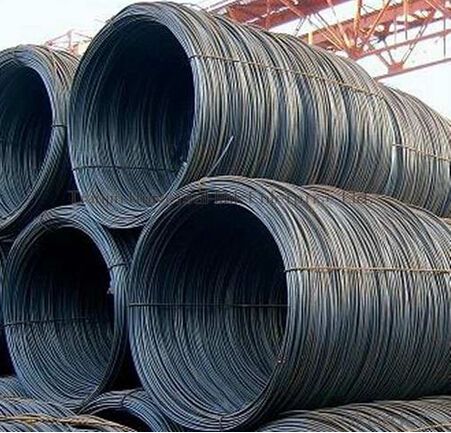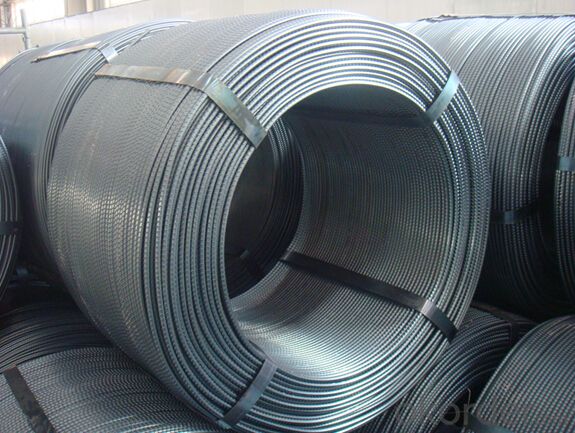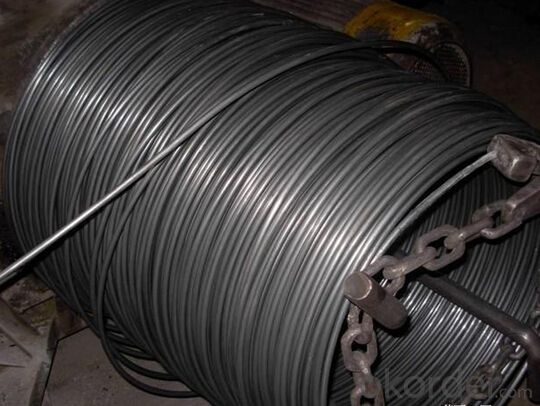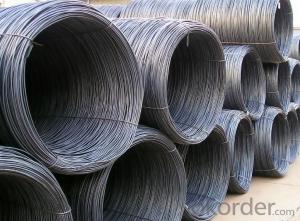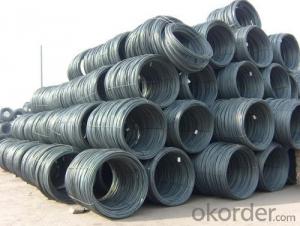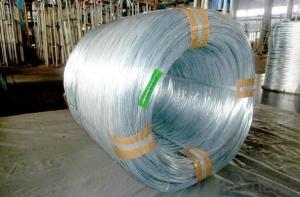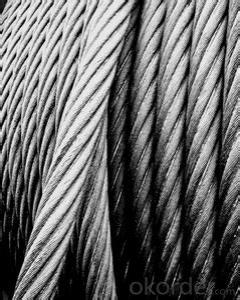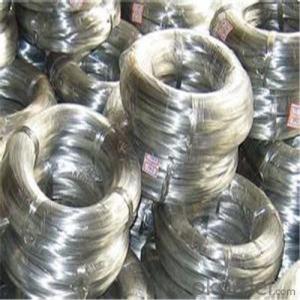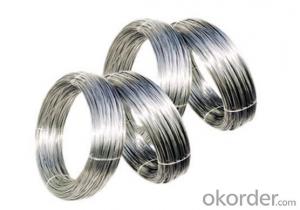High Quality Galvanized 8mm Steel Wire Rod
- Loading Port:
- Tianjin
- Payment Terms:
- TT OR LC
- Min Order Qty:
- 3 m.t.
- Supply Capability:
- 10000 m.t./month
OKorder Service Pledge
Quality Product, Order Online Tracking, Timely Delivery
OKorder Financial Service
Credit Rating, Credit Services, Credit Purchasing
You Might Also Like
Specification
Type:
Carbon Steel,Spring Steel,Bearing Steel,Gear Steel,Deformed Steel,Stainless Steel,Alloy Steel
Shape:
Steel Coil,Steel Sheet,Steel Wire Rod,Steel Flat Bar,Steel Square Bar,Steel Angle,Steel Round Bar,Steel Billets
Technique:
Hot Rolled,Cold Rolled,Cold Drawn,ERW,Forged,Saw,Extruded,EFW,Spring
Surface Treatment:
Galvanized,Coated,Copper Coated,Color Coated,Oiled,Dry,Chromed Passivation,Polished,Bright,Black,PVDF Coated
Certification:
ISO,SGS,BV,IBR,RoHS,CE,API,BSI,UL
Thickness:
5.0-30mm
Width:
5.0-30mm
Length:
In coils
Outer Diameter:
5.0-30mm
Net Weight:
2m.t.
Packaging:
Seaworthy Packaging
High Quality Galvanized 8mm Steel Wire Rod
Detailed Information of the High Quality Galvanized 8mm Steel Wire Rod
| Name | Hot Rolled High Carbon Wire Rod |
| Shape | Round Bar/Square Bar/Flat Bar/Plate/Wire |
| Standard | GB/ASTM/SAE/AISI/DIN/JIS/EN/BS |
| Surface Treatment: | Black/Peeling/Polished/Machined |
| Delivery Condition: | Hot Rolled or Forged/Peeled or Black Surface |
| Test | SGS/UT 100% Elements Testing |
| Certificate: | ISO/Mill Certificate |
| Service: | 24 hours online service / |
| more than 20 years trading and manufacture | |
| Quality Assurance: | the third party inspection, such as SGS, BV, TUV…etc. is acceptable |
| Packaging Details: | Seaworthy Packaging or as per customer's packing instruction |
Chemical Composition of the High Quality Galvanized 8mm Steel Wire Rod
| Grade | Chemical Composition(%) | |||||
| C | Mn | Si | S | P | B | |
| SAE1008 | 0.1max. | 0.3~0.50 | 0.15max | 0.050max | ≤0.040 | >0.0008 |
| Mechanical properties | ||||||
| Yield strength(N/mm2) | Tensile strength(N/mm2) | Elongation(%) | ||||
| 250-280 | 350-380 | ≥32 | ||||
Company Introduction the High Quality Galvanized 8mm Steel Wire Rod
CNBM International Corporation is the most import and export platform of CNBM group(China National Building Material Group Corporation) ,which is a state-owned enterprise, ranked in 270th of Fortune Global 500 in 2015.
With its advantages, CNBM International are mainly concentrate on Cement, Glass, Iron and Steel, Ceramics industries and devotes herself for supplying high quality series of refractories as well as technical consultancies and logistics solution.
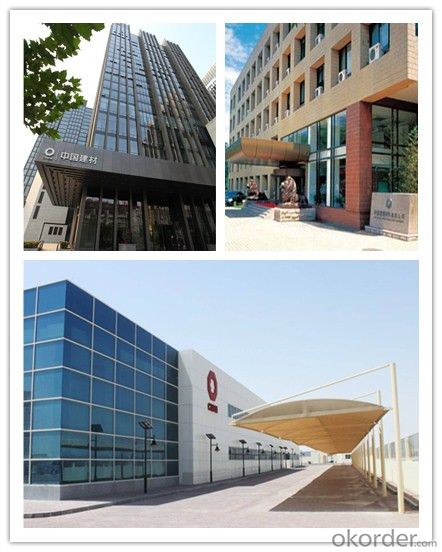
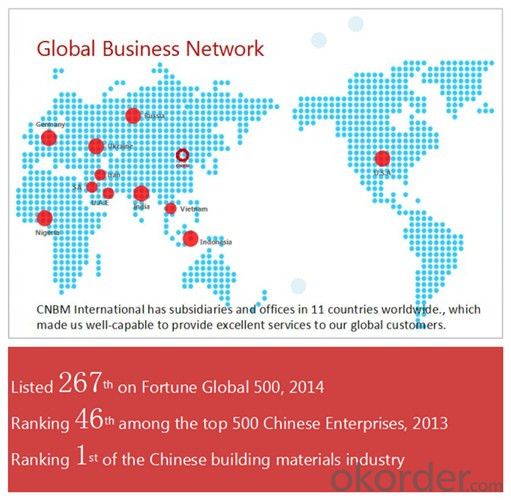
| After-sale service | CNBM provides the services and support you need for every step of our cooperation. We’re the business partners you can trust; you can relax and get on with doing business. |
| For any problem, please kindly contact us at any your convenient time, we’ll reply you in our first priority within 24 hours | |
| Advantages | Industry experience over 20 years. |
| Shipment of goods -More than 70 countries worldwide. | |
| The most convenient transport and prompt delivery. | |
| Competitive price with best service. | |
| High technical production line with top quality products. | |
| High reputation based on best quality products. |
Packaging & Delivery the High Quality Galvanized 8mm Steel Wire Rod
| Packaging Detail | Sea worthy packing /as per customer's packing instruction |
| Delivery Detail | 15 ~ 40 days after receiving the deposit |
Products Show
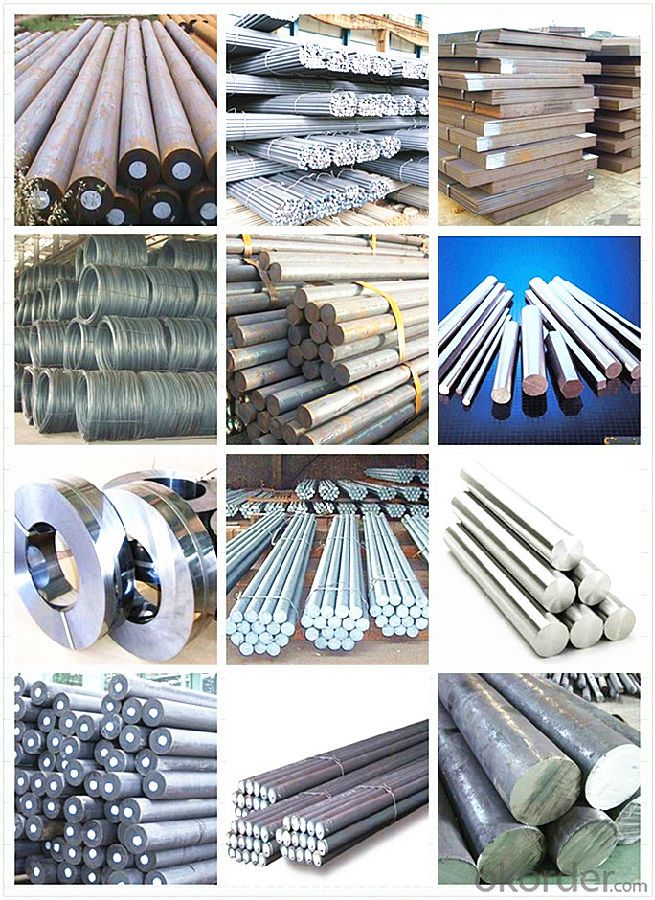
FAQ:
| Are you a trader or manufacturer? | Manufacturer |
| What’s the MOQ? | 3 metric ton |
| What’s your delivery time? | 15-35 days after downpayment received |
| Do you Accept OEM service? | Yes |
| what’s your delivery terms? | FOB/CFR/CIF |
| What's the Payment Terms? | 30% as deposit,70% before shipment by T/T |
| Western Union acceptable for small amount. | |
| L/C acceptable for large amount. | |
| Scrow ,Paybal,Alipay are also ok | |
| Why choose us? | Chose happens because of quality, then price, We can give you both. |
| Additionally, we can also offer professional products inquiry, products knowledge train (for agents), smooth goods delivery, excellent customer solution proposals. | |
| What's your available port of Shipment? | Main Port, China |
| What’s your featured services? | Our service formula: good quality+ good price+ good service=customer's trust |
| Where are your Market? | Covering more than 160 countries in the world |
- Q: How does special steel contribute to the medical aftermarket industry?
- Special steel plays a crucial role in the medical aftermarket industry by providing high-quality materials necessary for manufacturing medical devices and equipment. Special steel, also known as stainless steel, offers numerous advantages that make it ideal for medical applications. First and foremost, special steel is highly resistant to corrosion and rust, which is essential in the medical field where hygiene and cleanliness are of utmost importance. Medical devices like surgical instruments, implants, and equipment need to be sterilized frequently, and the corrosion resistance of special steel ensures their durability and longevity. Additionally, special steel possesses excellent strength and hardness properties, making it suitable for medical implants and prosthetics. These implants must be strong enough to endure the stresses and strains of the human body while maintaining their structural integrity. Special steel provides the necessary strength and toughness required for these critical applications. Furthermore, special steel is biocompatible, meaning it does not cause any adverse reactions or toxicity when in contact with living tissues. This property is essential for implants and devices that come into direct contact with the human body, as it minimizes the risk of rejection or allergic reactions. Moreover, special steel's versatility allows it to be easily machined and fabricated into complex shapes and sizes, meeting the diverse requirements of medical applications. It can be formed into delicate surgical instruments, precision cutting tools, and even large-scale equipment such as hospital beds and imaging machines. The high precision and dimensional stability of special steel contribute to the accuracy and reliability of medical devices. This is especially crucial in areas like diagnostics and imaging, where precise measurements and high-quality images are vital for accurate diagnosis and treatment planning. In conclusion, special steel's corrosion resistance, strength, biocompatibility, and versatility make it an invaluable material in the medical aftermarket industry. Its use in manufacturing medical devices and equipment ensures the highest standards of hygiene, durability, and performance, ultimately contributing to the advancement of healthcare and improving patient outcomes.
- Q: What are the main applications of special steel in the power generation sector?
- Special steel is extensively used in the power generation sector for various critical applications. Some of the main applications include turbine blades, rotors, and casings, which require high strength, heat resistance, and corrosion resistance. Additionally, special steel is used in the construction of power plant boilers, pressure vessels, and piping systems, ensuring efficient operation and long-term durability. Furthermore, it finds application in the manufacturing of electrical components such as generators, transformers, and transmission lines, where its superior electrical conductivity and magnetic properties are crucial. Overall, special steel plays a vital role in enhancing the performance, reliability, and safety of power generation equipment and infrastructure.
- Q: How does special steel contribute to the automotive safety?
- Special steel contributes to automotive safety in several ways. Firstly, it provides increased strength and durability to the vehicle's structure, which helps to absorb and distribute impact forces during collisions, thus protecting the occupants. Secondly, special steel is often used for manufacturing components like airbags, seat belts, and anti-lock braking systems, ensuring their reliability and effectiveness in critical situations. Additionally, this type of steel can enhance the vehicle's resistance against corrosion, reducing the risk of structural damage over time. Overall, special steel plays a vital role in enhancing the safety standards of automobiles.
- Q: What are the properties of wear-resistant alloy steel?
- Wear-resistant alloy steel possesses properties such as high hardness, toughness, and strength, making it resistant to abrasion, impact, and wear. It also exhibits excellent heat resistance, corrosion resistance, and dimensional stability, allowing it to maintain its integrity even under harsh operating conditions.
- Q: Can special steel be used in the wind turbine manufacturing industry?
- Yes, special steel can be used in the wind turbine manufacturing industry. Special steel offers superior mechanical properties such as high strength, corrosion resistance, and durability, making it suitable for various components used in wind turbines, including tower structures, shafts, gears, and bearings. By using special steel in wind turbine manufacturing, the industry can enhance the performance and longevity of these renewable energy systems.
- Q: What are the main advantages of using special steel in the automotive racing industry?
- The main advantages of using special steel in the automotive racing industry include its high strength-to-weight ratio, superior durability, and improved performance. Special steel alloys offer increased tensile strength and toughness, allowing for lighter and more rigid components, which contribute to higher speeds and improved handling. Additionally, special steel's resistance to wear and fatigue ensures better reliability and longevity of critical parts, reducing the risk of failures and costly repairs.
- Q: What are the applications of special steel in the manufacturing supply chain?
- Special steel has a wide range of applications in the manufacturing supply chain. It is commonly used in the production of machinery, tools, and equipment due to its exceptional strength, durability, and resistance to wear and corrosion. Special steel is also utilized in the automotive and aerospace industries for components that require high performance and reliability. Additionally, it finds use in construction, energy, and defense sectors, among others. Overall, special steel plays a crucial role in enhancing the quality and efficiency of various manufacturing processes and end products.
- Q: How does special steel perform in terms of hardness?
- Special steel typically performs very well in terms of hardness. It has a higher hardness level compared to regular steel due to the addition of various alloying elements during its production. This enhanced hardness allows special steel to withstand wear, abrasion, and deformation better than other types of steel. It also enables special steel to be suitable for specialized applications that require high strength and resistance to impact or pressure.
- Q: What are the requirements for special steel used in wind turbines?
- The requirements for special steel used in wind turbines are crucial for ensuring the reliability, efficiency, and durability of these large-scale renewable energy systems. Here are some of the key requirements: 1. Strength and Durability: Special steel for wind turbines must possess high strength and durability to withstand the harsh operating conditions, including strong winds, vibrations, and extreme temperature variations. It should have a high fatigue resistance to endure cyclic loading over the turbine's operational life, which can be up to 20-25 years. 2. Corrosion Resistance: Wind turbines are often installed in coastal or offshore environments, where they are exposed to corrosive saltwater and salt-laden air. Therefore, the special steel used in wind turbines must have excellent corrosion resistance to prevent degradation and ensure long-term performance. 3. Weldability: The steel used in wind turbines should be suitable for welding processes to facilitate the fabrication and assembly of the turbine components. Good weldability allows for efficient construction and maintenance, reducing downtime and associated costs. 4. Low Temperature Toughness: Wind turbines are often located in regions with low temperatures, such as arctic or mountainous areas. Special steel used in these turbines should possess good low-temperature toughness, ensuring its mechanical properties remain intact even in cold climates. 5. Magnetic Properties: Wind turbines employ various electrical components, such as generators and transformers, where electromagnetic fields are present. Special steel used in these components should have specific magnetic properties to minimize energy losses and maximize the efficiency of the electrical system. 6. Cost-effectiveness: While meeting all the above requirements, the special steel used in wind turbines should also be cost-effective. It should offer a good balance between performance and cost to ensure the economic viability of wind energy projects. Meeting these requirements is essential to ensure the long-term operation and sustainability of wind turbines, enabling them to generate clean and renewable energy efficiently.
- Q: How does special steel contribute to the defense aftermarket industry?
- Special steel plays a crucial role in the defense aftermarket industry by providing enhanced strength, durability, and resistance against extreme conditions. This allows for the manufacturing of high-performance components and equipment, such as armored vehicles, aircraft, and naval vessels. Special steel's unique properties enable the production of advanced weaponry and protective gear, ensuring the safety and effectiveness of defense operations. Additionally, its ability to withstand intense heat and pressure makes it ideal for critical applications like missile guidance systems and nuclear reactors. Overall, special steel is an essential material that drives innovation and strengthens the capabilities of the defense aftermarket industry.
Send your message to us
High Quality Galvanized 8mm Steel Wire Rod
- Loading Port:
- Tianjin
- Payment Terms:
- TT OR LC
- Min Order Qty:
- 3 m.t.
- Supply Capability:
- 10000 m.t./month
OKorder Service Pledge
Quality Product, Order Online Tracking, Timely Delivery
OKorder Financial Service
Credit Rating, Credit Services, Credit Purchasing
Similar products
Hot products
Hot Searches
Related keywords
